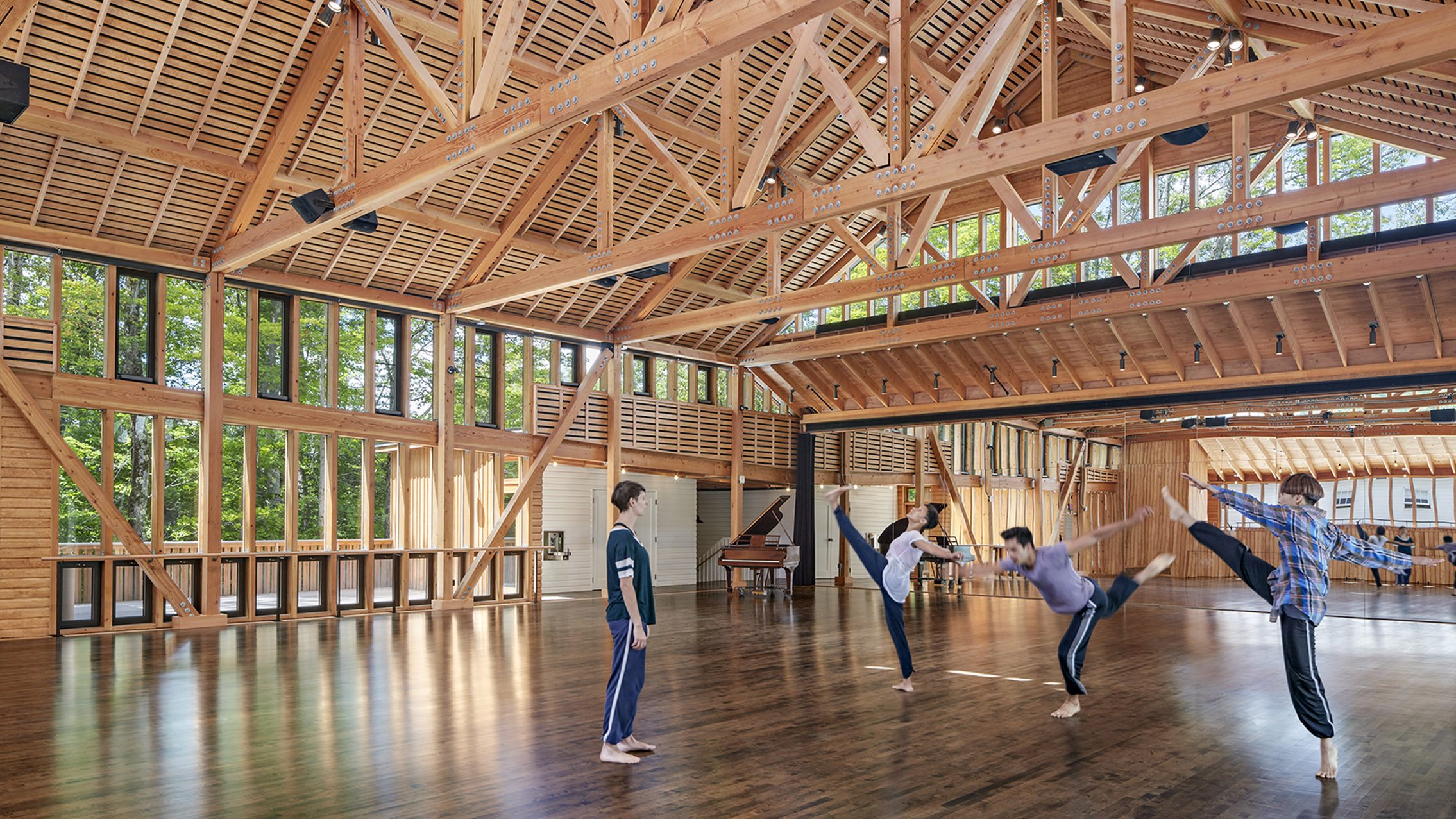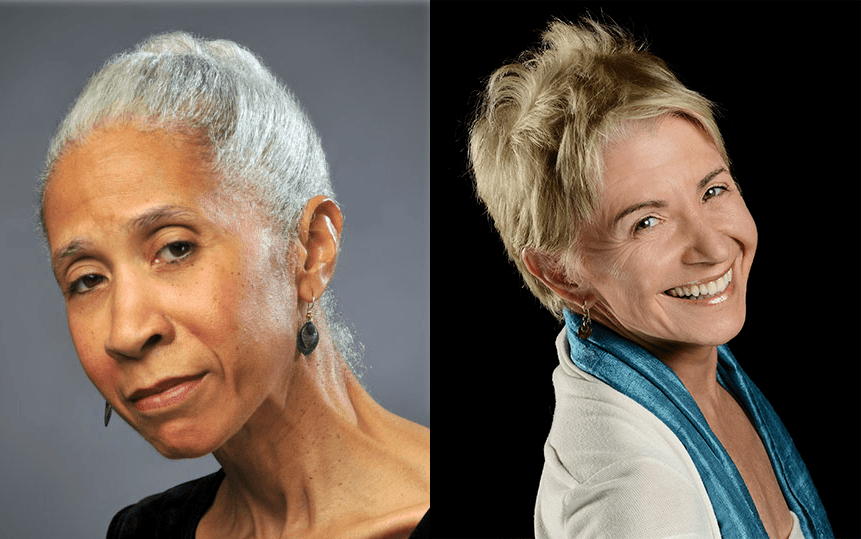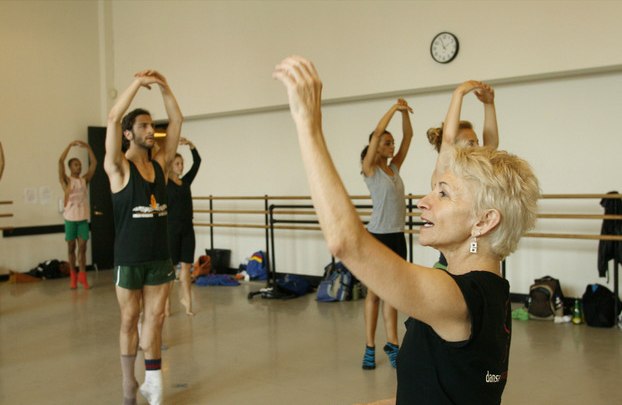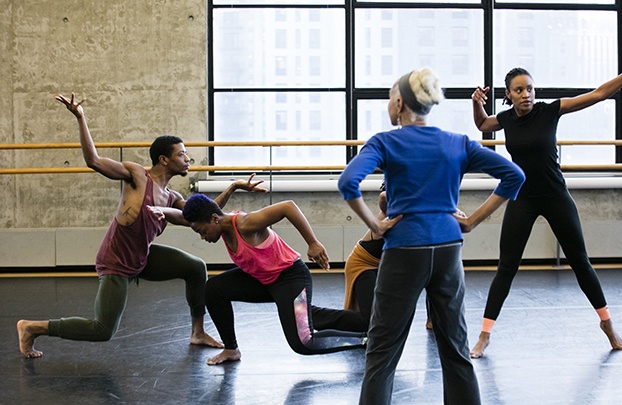 How do you support early-career choreographers and cultivate thriving generations of artists?
How do you support early-career choreographers and cultivate thriving generations of artists?
Get to know the inaugural Program Directors, transformative pioneers and dance field mentors Dianne McIntyre and Risa Steinberg as they dive into answers surrounding this posed question.
The Ann & Weston Hicks Choreography Fellows Program at Jacob’s Pillow is set to take place in August 2018, McIntyre and Steinberg are laying the groundwork for this program–ensuring it takes advantage of all the resources the Pillow has to offer, while mirroring the needs of the field at large.
Learn more and apply to the Choreography Fellows Program

As the inaugural directors, what are your goals in developing the Choreography Fellows Program at Jacob’s Pillow?
Risa Steinberg: For me, it’s to support choreographers in their process. Even though there are common denominators in choreographers’ processes, there are also very unique differences to each voice. I want to help them ask questions about how to communicate what it is they want to say and what it is they want the audience to receive.
Dianne McIntyre: One goal I see is to lay out a framework for the future years of this particular program. This is the inaugural year, however Risa and I will work in developing and experimenting with different facets of this program, so that it can be an outline of a framework for the future.
The only way you can guide somebody is to know the path they want to be on and not tell them that their path has to be different.
Risa Steinberg
You both work with young choreographers—what are some challenges you see facing new choreographers trying to enter the field today?
RS: Space is fundamental. How do you afford space and how do you afford to pay dancers? How do you get your work seen by festivals? Especially now, every dancer should get paid, even though they often don’t. But I don’t really think that this is a unique time in the history of dance—this has always been a challenge. I think, in fact, there is more opportunity than there has been, but the amount of money that it takes to get space is challenging, if you’re not in a university that gives you space.
DM: The money part is something that has shifted over the years. Some years ago, there was more funding for choreography and performing arts in general; it was very available. People could be young and just start a dance company. To have that continuation of a group of people who see your vision and perform in your vision and be able to keep up with those people over time—that is a challenge that dancers have today. To identify those individuals who will be supportive of your style in terms of their commitment.

What are you both looking for in a prospective fellow?
RS: I have a list! Passion to create, knowledge of the craft of choreography or whatever that means to somebody, experience in working with others, communicating what it is they want to see.
DM: That’s a great list! I’m looking for people who have that passion but also a commitment to continue with exploration in the field of choreography. It’s not just a passion or skill, they have to have a certain kind of self confidence in the way they express what they want and also in how they move forward. They have to have self confidence to say “Yes, I can do this, and even if it’s not something that has been seen before, I can do this.” Sometimes choreographers have to also be psychologists…how they are able to work people in the sometimes pressured and intense situations while dealing with differences of opinion; they have to be resilient.
How do you view your role as mentors?
RS: As a supporter and a protagonist and antagonist. I want to support them but I always want to question what it is. One of the challenges will be that we have to get to know what their voice is. Learning what their voice is, is going to be our job.
DM: It is a challenge. Everybody in the performing arts world has what they are drawn to.
We have to be completely open-minded and look at what directions they are interested in going and set aside our judgment in terms of our particular idea of what dance or choreography is.
Dianne McIntyre

What do you hope that the fellows take away from this 10-day experience, if not any sort of final product?
RS: I think a couple of things: information, confidence to have questions, and enough realization about what they worked on and whether they want that to move forward. Learning what you don’t want is as important as learning what you do want. The umbrella of that is information about themselves as a creator and themselves as a director, because so much of being a creator is how you get what you want out of other people.
DM: I think they should also take with them what you might call “tools of investigation.” They’ll be right there with the Archives, and they’ll be associated with other Fellows as well as some of the other choreographers who will be in residence at that time. There might be something that they learned from one another that they can carry forward into their choreographic lives…there could be a point of view or a way of researching, a way of looking at the world…because they won’t be isolated—they’ll be in the company of others.
THE SCHOOL AT JACOB’S PILLOW
The School at Jacob’s Pillow is the continuation of Ted Shawn’s vision of creating a space for dance education. Explore what programs are offered and school observation hours.